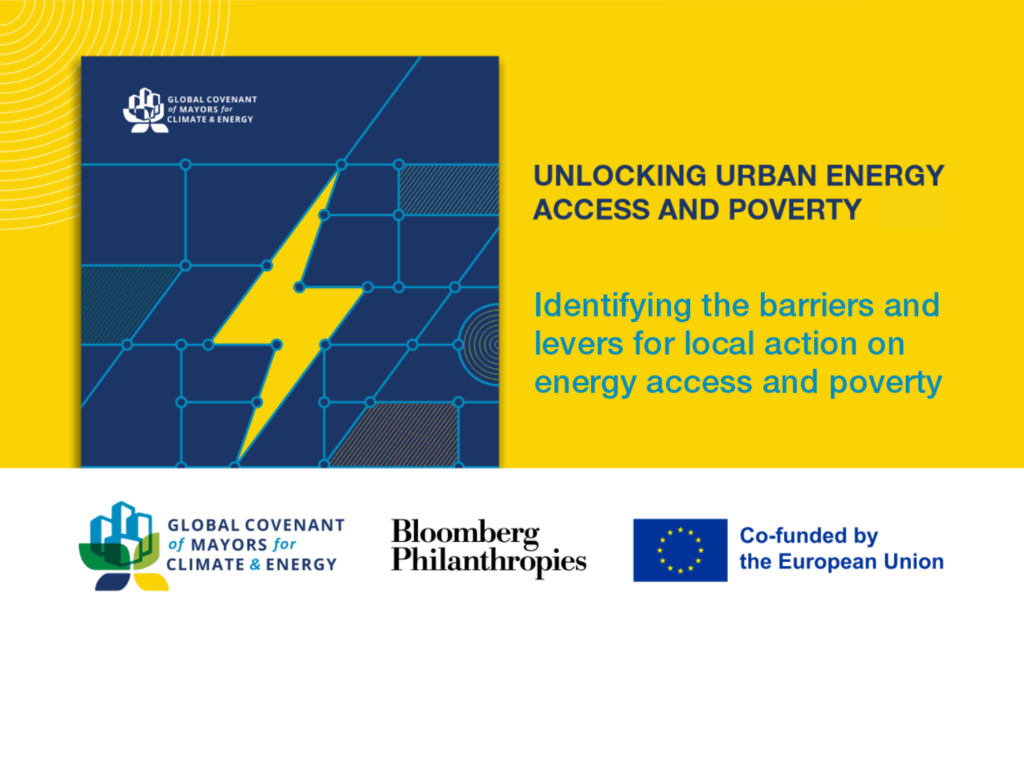If you’re joining us from the Climate Week NYC event, in partnership with ARUP, you can learn more about the Unlocking Urban Energy Access and Poverty research and summary reports here:

HARNESSING THE ENERGY OF LOCAL LEADERSHIP: GLOBAL COVENANT OF MAYORS AND ARUP RELEASE NEW REPORT, “UNLOCKING URBAN ENERGY ACCESS AND POVERTY”
Lacking access to affordable and reliable energy is a clear indication of deprivation in the daily lives of urban residents. Local governments are well aware of the urgency and benefits associated with tackling energy access and poverty. However, they frequently encounter significant and complex barriers that limit their ability to implement interventions or explore innovative solutions. To help local governments ensure access to affordable, reliable, and sustainable energy for all, the Global Covenant of Mayors (GCoM) and ARUP released the highly anticipated Unlocking Urban Energy Access and Poverty research and summary reports, accompanying the Energy Access and Poverty Pillar (EAPP) that the GCoM alliance activated in 2023 as part of its Common Reporting Framework (CRF).
The EAPP is structured across three key attributes: secure, affordable, and sustainable energy. The attributes are designed to align with UN Sustainable Development Goal #7 (SDG #7) and the latest findings from across the energy community, covering more than 50 indicators, which were directly sourced from practitioners and partners across multiple regions to offer a flexible, evidence-based method to track progress based on each city and local government’s unique needs and contexts.
Through the EAPP, the 12,800+ cities and local governments that make up the GCoM alliance have begun tracking progress and taking action on energy access and poverty. Local momentum can identify and unlock levers for greater engagement in energy policy, especially around the generation and consumption of secure, affordable, and sustainable energy.
Unlocking Urban Energy Access and Poverty is informed by findings from a literature review on energy access and poverty, a survey and data analysis collected from 74 GCoM signatories, and stakeholder interviews from a case study on energy access and poverty in Cape Town, South Africa. The research mapped the structural barriers local governments face to possible approaches and levers; practical shifts for local governments to embed innovations in their visions, policies and programmes to address energy access and poverty.
Above all, the report finds that local governments are well-positioned to respond to the needs and priorities of their constituents, by maximising their current means and capacities – but require additional collaboration, expertise, and the ideal structural levers to spur energy access and poverty action at the speed and scale required to achieve SDG #7 and secure safe and sustainable energy for all.
For more information on the report, please contact us at: info@globalcovenantofmayors.org